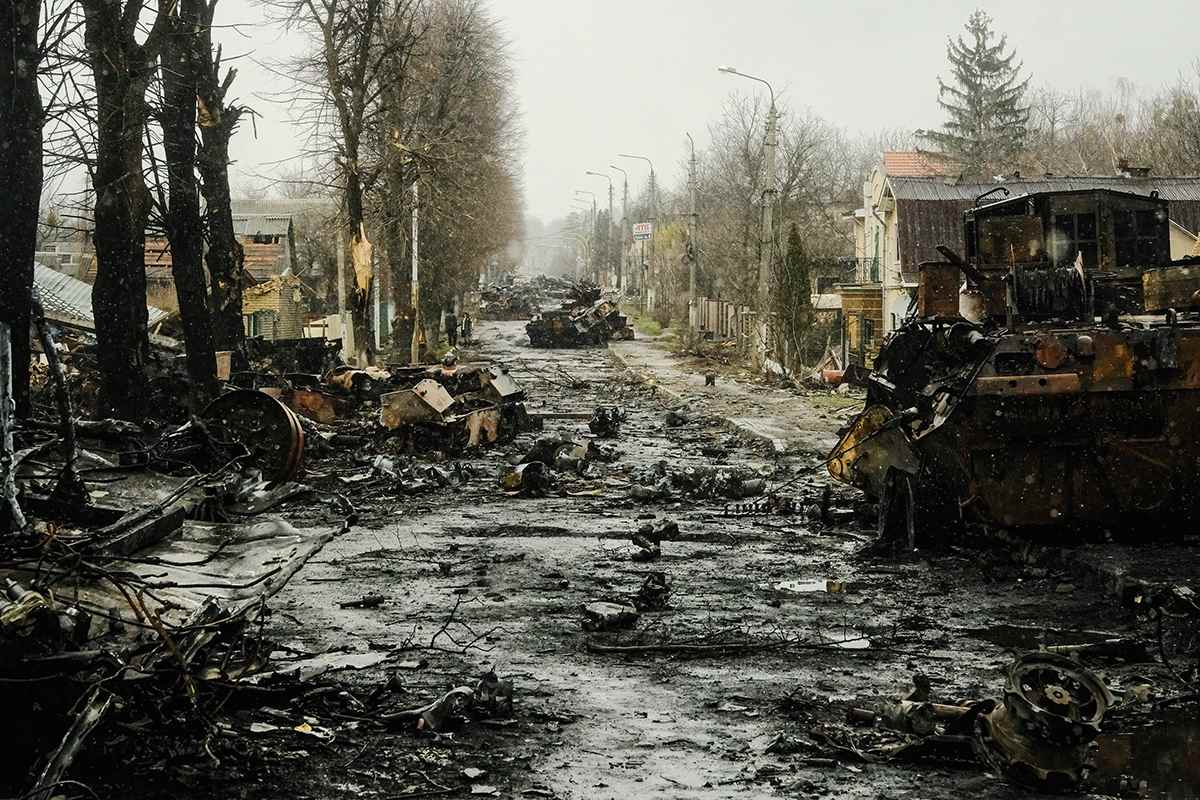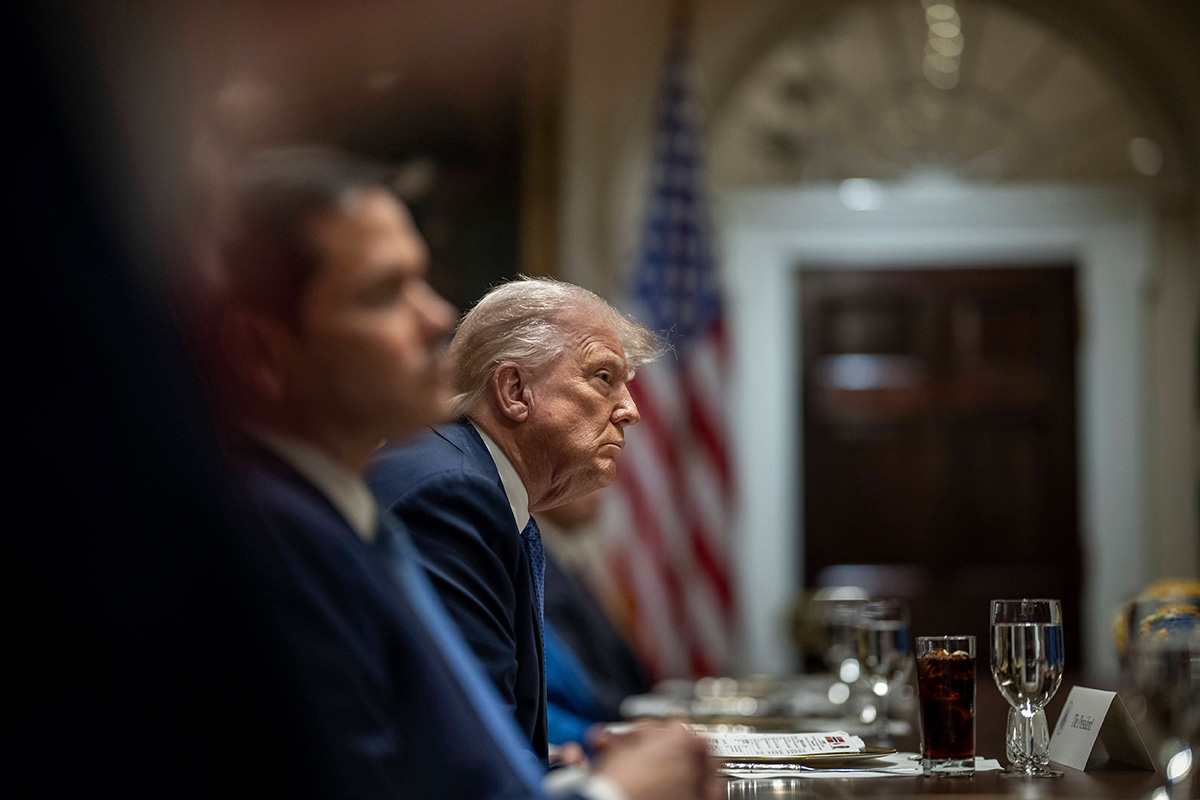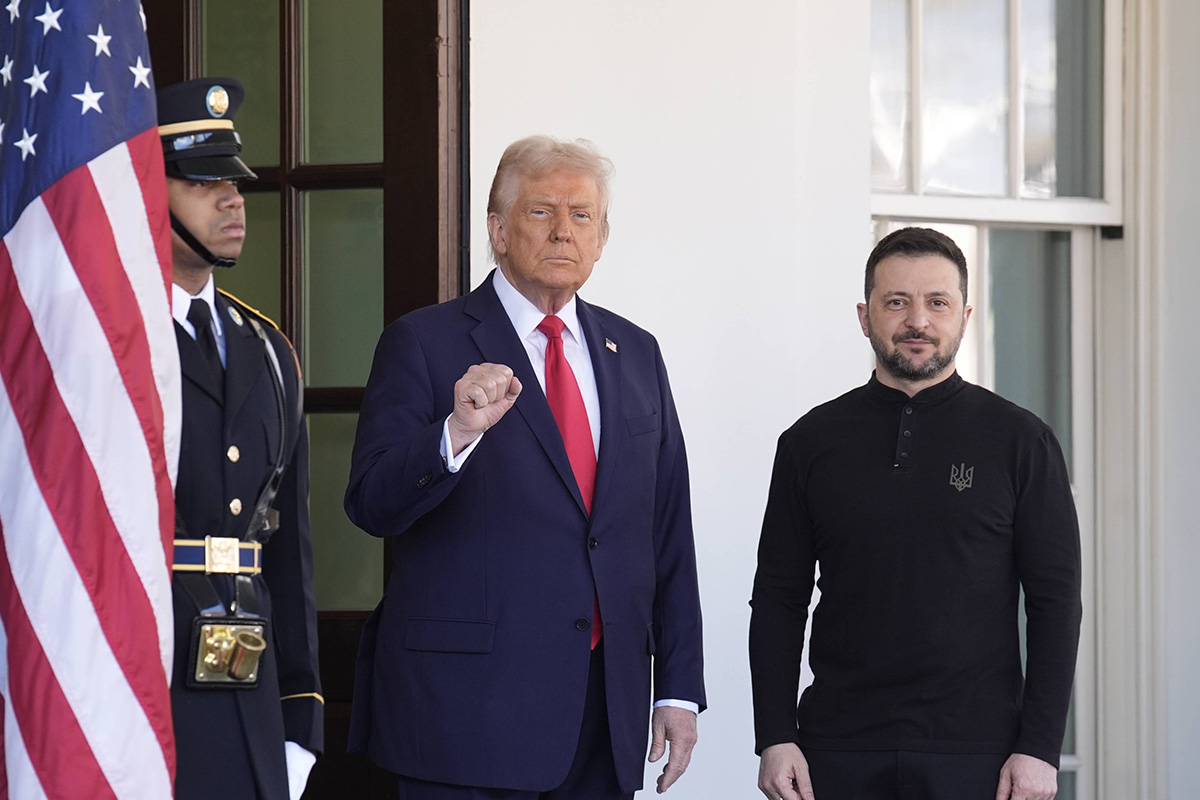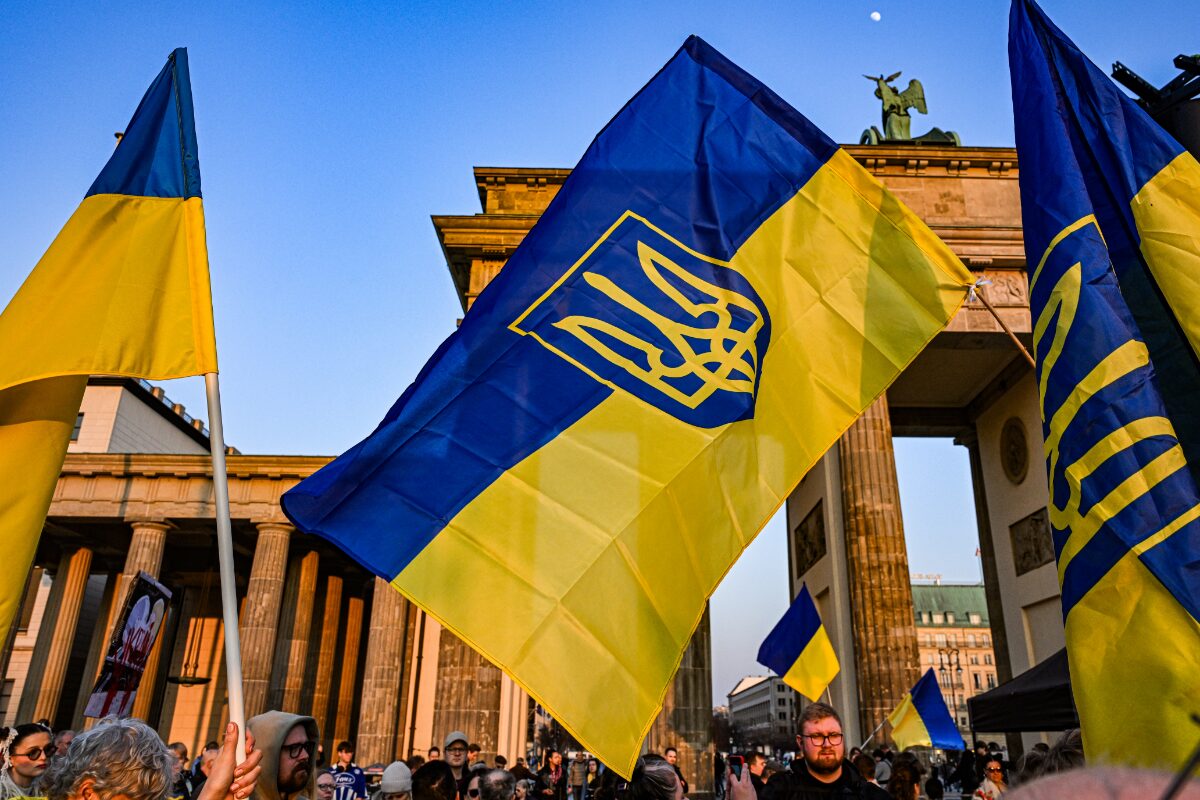Russia’s atrocities in Ukraine: war crimes, crimes against humanity or genocide?
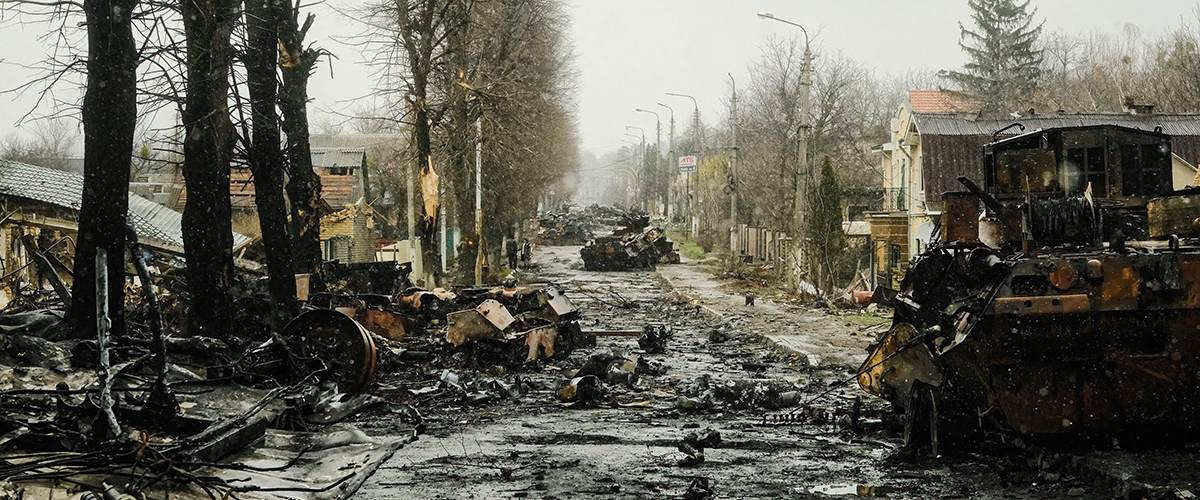
Russia has committed massive and grave war crimes from the beginning of its full-scale invasion of Ukraine. The webinar, organized on 12 April 2022 by LibMod, Chatham House, and Atlantic council, examined war crimes committed by Russian troops and the criteria to classify them as crimes against humanity or even as genocide.
Sie sehen gerade einen Platzhalterinhalt von YouTube. Um auf den eigentlichen Inhalt zuzugreifen, klicken Sie auf die Schaltfläche unten. Bitte beachten Sie, dass dabei Daten an Drittanbieter weitergegeben werden.
Russia has committed massive and grave war crimes from the beginning of its full-scale invasion of Ukraine. Scenes from Mariupol, Bucha, Irpin, Borodianka, Kramatorsk, and many more shocked the international community. Mass killings of civilians, tortures, raping, kidnapping, forced deportation, and hindering of evacuation and humanitarian convoys – all raise the question about a possible genocide of the Ukrainian people by the Russian Federation. The webinar examined war crimes committed by Russian troops and the criteria to classify them as crimes against humanity or even as genocide.
Prof. Christian Tomuschat, Former Member of the UN International Law Committee stated that one cannot speak of genocide in Ukraine generally, as, according to him, Russians do not proceed with the same brutality everywhere. However, the developments in and around the city Mariupol at the Azov Sea meet the criteria for genocide, established by international law. Residents were shelled and bombed there for several weeks; the whole infrastructure is destroyed, and residents are deprived of access to food, water, and electricity. It seems that the aim of the Russian troops is to take over and occupy Mariupol at any cost. Russian troops not only destroy the buildings in the city but also deliberately annihilate the residents of the city. They were not allowed to leave the city, since humanitarian corridors were shelled. Only later, did the residents of the city manage to leave. Hence, Russia’s intent to commit genocide can be deduced from this circumstantial evidence. Moreover, Putin denies, as stated in some of his texts and those of official Kreml media, that the Ukrainian nation and Ukrainian state have the right to exist.
Oleksandr Merezhko, Head of the Committee on Foreign Policy and Interparliamentary Cooperation, Verkhovna Rada of Ukraine, stated that, in his opinion, atrocities committed by the Russian Federation in Ukraine are a genocide. Mr. Merezhko referred to the Declaration of the Verkhovna Rada of Ukraine “On the Genocide Committed by the Russian Federation in Ukraine”, which currently is being reviewed in the Parliament. With this declaration, the Verkhovna Rada is to recognize the actions by the Russian Federation as an act of genocide against the Ukrainian nation and appeals to all international organizations and parliaments to recognize Russian atrocities as genocide against the Ukrainian people. For Ukrainians, the biggest challenge now is to prove the intent of the Russian Federation to destroy Ukrainians as a whole or in part. Russian politicians, including Mr. Putin, don’t openly state their intent to destroy Ukrainians because they are Ukrainians. Putin is using euphemisms, talking about “denazification” and that “Ukrainians and Russians are the same people”. However, Russian propaganda and hatred purposely fuelled by it, point clearly to the genocidal intent.
John Herbst, Senior Director of the Eurasia Center, Atlantic Council, and Former US Ambassador to Ukraine, stated that Russian atrocities in Ukraine must be studied precisely, while Mariupol must be considered as a “ground zero“. The article in RIA Novosti, published on 3 April, might be a turning point in proving the genocidal intent. It depicts Russia’s intention to “denazify“ Ukraine, wipe out the Ukrainians, put them in labor camps, and re-educate them. The intent of genocide can also be seen in Russian media and in Putin’s and Medvedev’s claims. These messages fuel hatred in Russian society. Since the outrage about Russia’s atrocities is growing in the US, Mr. Herbst argues that a carefully built argument of genocide could result in the decision to enforce humanitarian corridors with an air force. If the reports of the use of chemical warfare by Russia in Mariupol prove to be true, the US Administration will be under great pressure to enforce humanitarian air corridors.
Wayne Jordash, Managing Partner of Global Rights Compliance LLP, draws attention to the very early stage of gathering evidence, which displays only fractions of what has really happened. The patterns point out at escalation: at the beginning, war crimes were committed, trying to cohere the Ukrainian population to accept the Russian occupation. Then it increased to include the systematic attacks against the population, which are considered crimes against humanity. Now the escalation is increasing even more so that even if the initial intention of the Russian military was not that of annihilation, the evolution in this direction has happened, as the local population showed resistance. This kind of violence is designed to destroy parts of the Ukrainian people. However, the practice in international trials seems to focus on physical destruction or the intent of physical destruction. Attempts to liquidate the state or to attack the identity might be considered steps leading to genocide, but are not considered genocide by itself. Mr. Jordash also believes that some of the most important actions, that can be considered genocidal are those of deporting children from Ukraine, sexual violence against women, and mass killings or other forms of harm. Also, local persecutions of crimes are important because they take broader historical and cultural context into account. From this perspective, the long history of oppression of Ukrainians by Russia and Russian atrocities since 2014 are important for any tribunal to understand how we arrived at the current situation.
Marieluise Beck, Director for East-Central and Eastern Europe at LibMod and moderator of the discussion, referred to the principle of “never again” in German post-WWII politics. This principle should mean that the unlawfully attacked country must be strengthened, and the victims must be protected. During the war in the former Yugoslavia, the West waited too long until a genocide of eight thousand Bosnian men happened. Ms. Beck appeals to Germany and the West to support Ukraine more decisively.
A joint event by
![]()


Verwandte Themen
Newsletter bestellen
Tragen Sie sich in unseren Newsletter ein und bleiben Sie auf dem Laufenden.
